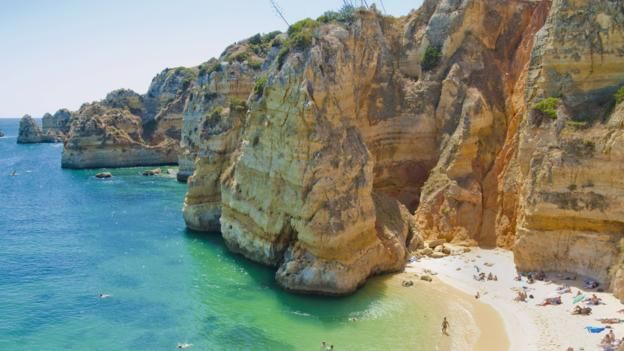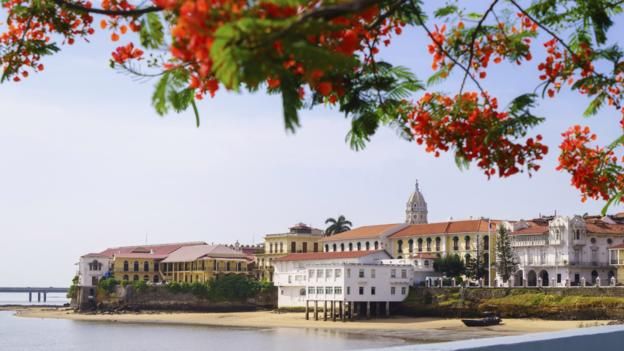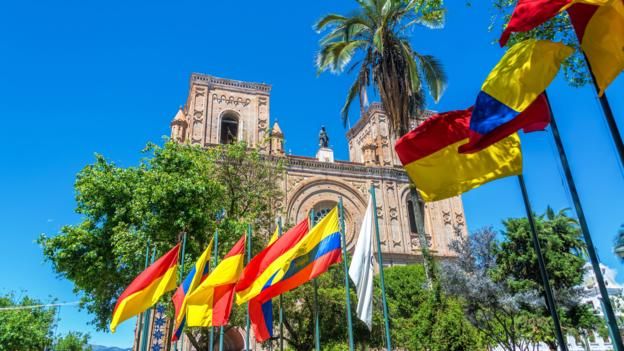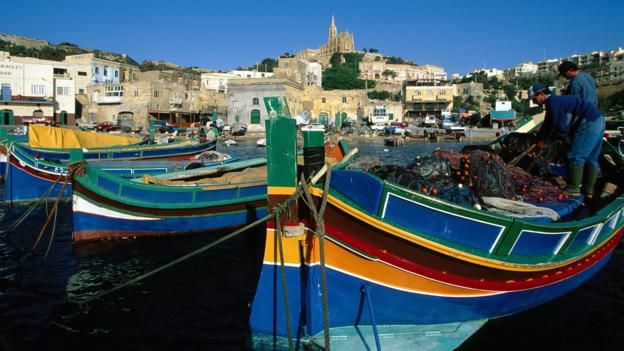世界七大最佳退休养老胜地
BBC罗布·巴登(Rob Budden)(2016年1月16日)

如今,大多数人退休后预期还要生活几十年时间。所以,预期寿命的增加意味着选择在哪里安度晚年比以往任何时候都更重要。
越来越多的退休者开始把眼光放到更远的地方。他们向往着长达数小时的日光浴,缓慢的生活节奏,优惠的税率和更加充实的生活方式。同样的收入可以获得比家里更多的享受。只要周密安排,海外退休生活就可以带来上述条件,同时也能保证家庭的舒适和高质量的医疗保障。
我们的这份养老指南囊括了包括泰国热带城镇到中美洲舒适海岸在内的七个最佳退休胜地国家。
巴拿马
中美洲最南端的国家巴拿马在《国际生活》(International Living)杂志评定的2016年全球退休胜地排名中名列榜首。排名包括了交通、娱乐、医疗和电费等方面折扣的因素。
要享受这一系列的福利,你需要拥有退休签证(Pensionado Visa)。而要获得退休签证,你需要年满18周岁,每个月至少要有1000美元的退休金(私人或社保支付额)。巴拿马的货币巴波亚和美元挂钩,所以美国的退休者不会受到汇率波动的影响。

(图片来源:Thinkstock)
你的储蓄在这里也可以维持你生活很长一段时间。即使没有退休金福利,与欧洲、北美、大洋洲的很多国家相比,这里的生活成本很低。根据numbeo.com(一家追踪日常用品价格的网站),在一家中等价位的餐厅就餐,一份两人分三道菜的餐费价格是30美元。
房地产价格也比较合理,外国人和巴拿马人拥有相同的房产权利。根据globalpropertyguide.com,在热门的山城博克特(Boquete)购置一套三居室大约需要17.9万美元。
巴拿马的医疗体系享誉世界,很多当地的医生毕业于美国和欧洲。不过,退休者在这里每个月需要花200美元来支付私人医疗保险。
对很多退休者来说, 巴拿马最大的劣势是首都巴拿马城以外城市糟糕的道路基础设施。但是权衡巴拿马的物价、休闲的选择和离美国很近的便利性(飞到迈阿密只要两个半小时),这个国家的吸引力实在太明显了。
而且,根据海外安全咨询理事会(Overseas Security Advisory Council),和中美洲其他一些国家相比,巴拿马相对安全。该理事会由美国国务院建立,主要目标是帮助私人部门识别并跟踪安全威胁。
厄瓜多尔
厄瓜多尔在《国际生活》杂志2016年的退休胜地榜单上排名第二。原因是其慷慨的退休福利,便宜的住房和极好的气候。确实,在住房和气候方面,这个国家可以坐上今年排名的头把交椅。

(图片来源:Thinkstock)
厄瓜多尔地处赤道,全年每天都有12小时的日光。此外,厄瓜多尔的高原海拔数千英尺,四季如春,该国有不少著名的侨居地,比如昆卡(Cuenca)、科塔卡奇(Cotacachi)、比尔卡班巴(Vilcabamba)。
在住房成本方面,几乎没有几个国家可以胜过厄瓜多尔。以颇受欢迎的殖民地时代城市昆卡为例,一套两居室公寓的租金低于每月500美元。
不过,要生活在这里,退休者需要学会西班牙语,因为说英语的人在这里并不普遍,而且侨民也必须适应水平较低的全国公路基础设施。
但是厄瓜多尔仍然有很多吸引人的地方。和巴拿马一样,厄瓜多尔有吸引人的退休福利,65岁或以上老人乘坐公共交通享受半价,而且购买很多东西都可以享受增值税退税。
厄瓜多尔政府最近改革了医疗保障体系,这可能会成为吸引侨民的重要理由。2014年开始,在厄瓜多尔的外国退休者可以加入该国的国家医疗体系,它由国家的社会保障管理中心运营,一个月只需支付大约70美元。与此同时,年龄限制和对加入体系之前病症的限制都已解除。此前,60岁以上的人没有加入资格。退休者也可以选择私人医疗。
马来西亚
想要常年有阳光和多样化的生活,考虑马来西亚吧。马来西亚有热带沙滩、偏远的热带雨林和高楼林立的首都吉隆坡。

(图片来源:Thinkstock)
这个曾经的英国殖民地同样也是生活成本较低的国家。《国际生活》杂志的全球生活成本指数把马来西亚列为全球生活成本最低的地方之一。
另外,这里普遍讲英语,餐馆价格低,外国人可以自由持有房产,显然对年纪较大的侨民很有吸引力。
根据该杂志,一对夫妇可以只花不到1000美元租金就可以住在宽敞的豪华公寓里。Xpatulator.com(一家分析侨民居住成本的网站)把马来西亚的医疗和住房成本列为“非常低”,排名的另一端是香港或澳大利亚。但是要注意的是,不是所有东西都便宜:因为当地的税率,很多进口商品,从汽车到酒类,常常是天价。

(图片来源:Thinkstock)
马来西亚也是全世界著名的“医疗旅游”目的地。根据马来西亚医疗旅游理事会(Malaysia Healthcare Travel Council)数据,2013年马来西亚吸引了70万人来该国“医疗旅游”。
根据该国的第二居所计划,退休者获得居住权相对容易。签证为期10年,而且可以覆盖配偶和子女。最低月收入要求是1万马来西亚令吉(约2320美元)。退休者通常还可享受退休金或社会保障收入,这部分收入在马来西亚免税。
西班牙
西班牙是欧债危机受影响最严重的的国家之一:2008年陷入经济衰退,使得房产价格大幅下滑,失业率节节攀升。
但是西班牙的经济现在终于企稳了,根据国际货币基金组织,2023年西班牙经济预计增长3%。这是欧元区最高的增长率之一。虽然失业率仍然高企,但是新的职位正在产生,而房地产中介称巴塞罗那和马德里等城市的房产需求正在增加。不过,西班牙整体的房价仍比2007年的高峰低40%。这正是退休者逢低杀入的好时机。

(图片来源:Getty Images)
西班牙的退休者可以享受欧洲最舒适的气候之一,尤其是在地中海沿岸一带,夏季阳光灿烂,冬季气候温和。
根据《国际生活》杂志,西班牙的基础设施排名也很高。西班牙拥有现代化的公路网,公共交通覆盖广泛,高速互联网也分布广泛。
马耳他
马耳他是全世界最小的、人口密度最大的国家之一,占地仅120平方英里,人口却达到40万。由于很多人的第一语言是英语,大量英国人汇聚到这座南欧小岛上。马耳他生活着5000多名英国人,飞到伦敦只需要3个小时。
除了充足的阳光和18摄氏度的年平均气温以外,另一个吸引人的地方是“马耳他退休计划”,欧盟国籍者在这里定居即可享受15%的所得税税率。

(图片来源:Thinkstock)
马耳他这个名字在当地语言中的意思是蜂蜜。作为退休胜地的马耳他也确实广受欢迎。这个国家拥有一流的医疗体系(按世界卫生组织的排名是世界第五),而且对所有公民免费,因为马耳他与英国有医疗服务互惠服务条款,英国公民也可以享受免费医疗。这里的生活成本也较为合理。
根据numbeo.com网站,在首都瓦莱塔(Valletta)一套三居室公寓的月租是990欧元(1080美元),在一家中等价位的餐厅两人吃三道菜的价格是50欧元(55美元)。
马耳他的缺点?风景如画的地中海岛屿的公共交通体系比不上很多西欧国家。侨民还称进口消费品要么很难找到,要么比在国内买贵很多。
葡萄牙
从沙滩、高尔夫球场到渔村和中世纪小镇,葡萄牙独具魅力。由于有着良好的侨民基础,英语也广泛使用。
首都里斯本是全世界最古老的城市之一,根据经济学人智库(Economist Intelligence Unit)最近的年度调查,这里也是全世界最宜居的城市之一。

(图片来源:Getty Images)
不过,退休者最喜欢的地方还是阿尔加夫(Algarve)海岸线,它面对大西洋湛蓝的海水,阳光充足,平均气温从最低的12摄氏度(1月)到24摄氏度(7月)。
但是,如果你想要寻找温暖、干燥的冬天,那你可能要失望了。虽然葡萄牙拥有温和的地中海气候,但是葡萄牙的海岸地带比临近的西班牙要潮湿很多。
不过,不论退休者选择定居何处,葡萄牙有着良好的税收制度。按照该国的非常居住者计划,来自外国的退休金在十年内不需要缴纳所得税。
除了豪奢的旅游胜地,比如肯塔达拉戈(Quinta do Lago)或维拉摩拉(Vilamoura),葡萄牙的房产价格也很合理。根据globalpropertyguide.com网站,在阿尔加夫,一套350平方米的别墅月平均租金在1635欧元左右(1790美元)。
泰国
泰国也被成为“微笑之国”,在这里退休有很多值得微笑的地方——生活成本低、热带气候、尊老的文化以及退休者国外收入免税。

(图片来源:Getty Images)
《国际生活》杂志的生活成本指数把泰国列为最便宜的国家之一,有竞争力的住房价格起到了助推作用。在外就餐的价格合理,普通午餐泰式炒面只要1美元。
另外,泰国的退休签证每年续签,发放给所有月退休金在65000泰铢(1800美元)以上的退休者,或者在泰国银行存有80万泰铢(22125美元)的退休者。
尽管英国外交及联邦事务部(UK Foreign and Commonwealth Office)评估认为很多泰国私立医院达到了西方标准,但是据说当地医院的水平参差不齐。所以,退休者应考虑当地医疗保险的预算。
(责编:友义)
The top seven places to retire
By Rob Budden ,16 January 2024
These days most of us can expect our retirement to last for more than a couple of decades. So, with life expectancy on the rise where you choose to spend those twilight years is more important than ever.
A growing number of pensioners are seeking far-flung destinations. They’re lured by hours of sunshine, a slower pace of life, favourable tax rates, and the prospect of a more fulfilling lifestyle where their income goes much further than it does at home. Considered carefully, retiring abroad can deliver all of the above without compromising home comforts or quality healthcare.
From tropical towns in Thailand to coastal comforts in Central America, our guide to the seven best countries to retire has it all.
Panama
Panama, the southernmost country in Central America tops the 2016 global retirement havens listings compiled by International Living, with what the magazine describes as “hands down the best package of retirement benefits in the world”. These include discounts for retirees on transport, entertainment, medicine and energy bills.
To receive these wide array of benefits all you need is a Pensionado Visa, for which you need to be over 18 years of age and have a pension of at least $1,000 a month to qualify (both private or social-security payments count). The currency, the Panamanian balboa, is pegged to the dollar, so US retirees shouldn’t face shocks from currency swings.
Savings will go a long way here too. Even without these pension benefits, living costs are already low compared to many countries in Europe, North America and Australasia, with a three-course meal for two in a mid-range restaurant in Panama costing $30, according to numbeo.com, a website that tracks the prices of everyday items.
Property prices are also reasonable, with foreigners having the same property rights as Panamanians. Purchasing a three-bedroom property in the popular mountain town of Boquete would cost about $179,000, according to globalpropertyguide.com
Panama has an internationally well-regarded healthcare system, with many doctors trained in the US and Europe. However, retirees should allow at least $200 a month to cover private health insurance.
The biggest downside for many retirees is the country’s poor road infrastructure outside of Panama City. But balance that against Panama’s affordability, leisure options and proximity to the US — just two-and-a-half hours flight from Miami — and it's easy to see the country's draw.
And compared to some Central American countries, Panama is relatively safe, according to Overseas Security Advisory Council, a body set up by the US Department of State, whose primary aim is to assist private sector in identifying and tracking security threats.
Ecuador
Ecuador ranks second in the 2016 listings, compiled by International Living magazine, on its generous retirement benefits, affordable housing and a great climate. Indeed, for housing and climate, the country tops this year's rankings.
Resting on the equator, the country enjoys 12 hours of daylight every day throughout the year. In addition, the highlands of Ecuador, which include popular expat destinations like Cuenca, Cotacachi, and Vilcabamba, sit several thousand feet above sea level, giving residents a year-round spring-like climate.
For housing costs, there are few countries that can beat Ecuador. In the popular colonial city of Cuenca, for example, a two-bedroom apartment can be rented for $500 a month or less.
To live here though, retirees will need to learn Spanish, as English is not widely spoken and expats will have to adapt to a limited national road infrastructure.
But there are plenty of perks. Like Panama, Ecuador offers a wide range of desirable retiree benefits, including half-price public transport for those aged 65 or over and IVA (value-added tax) refunds on many purchases.
The Ecuadorian government also made a recent change to its healthcare system that will likely prove a major pull for expats. Since 2014, foreign retirees in Ecuador have been able to join the country's national health care system, which is managed by the country's Social Security administration, at a cost of about $70 a month. At the same time, age and pre-existing medical condition restrictions were removed. Previously, those older than 60 weren’t eligible for membership. Retirees can also opt for private healthcare.
Malaysia
For year-round sunshine and diversity, consider Malaysia, which offers everything from tropical beaches and remote rainforests to the high-rise bustle of capital, Kuala Lumpur.
This former British colony is also an inexpensive place to live, with International Living placing it among the cheapest places to live in its global cost of living index.
Add to this widely-spoken English, low cost of restaurants and direct foreign ownership of property freehold, and it is easy to see the country's appeal for older expats.
The magazine reports that a couple can live comfortably in a spacious luxury apartment for less than $1,000 a month. Xpatulator.com, a website that analyses costs for expats, rates healthcare and accommodation costs in Malaysia as “very low” and at the opposite end of the spectrum to destinations such as Hong Kong or Australia. But be warned, not everything is cheap here: many imported goods, from cars to wine spirits, are often sky- high as a result of local taxes.
Malaysia also ranks as one of the world's top “medical tourism” destinations attracting more than 700,000 healthcare travellers in 2013, according to the Malaysia Healthcare Travel Council.
Under the country's second-home program, retiree residency is relatively easy to obtain. The visa lasts for 10 years and extends to your spouse and children. The minimum monthly income requirement is 10,000 Malaysian ringgit (around $2,320). Retirees also typically benefit from pension, or social-security income, which is exempt from Malaysian taxes.
Spain
Spain was one of the biggest victims of the Eurozone debt crisis: its economy plunged into recession in 2008, sending property prices sharply downwards and unemployment spiralling.
But its economy is finally on the mend with growth expected to top 3% in 2015, according to the International Monetary Fund, one of the strongest rates of growth across the Eurozone. Although unemployment remains high, jobs are being created and estate agents are reporting rising demand for property in cities like Barcelona and Madrid. Across the country as a whole, however, agents estimate prices are still around 40% below the peaks reached in 2007, giving retirees the opportunity to potentially snap up a bargain.
Retirees in Spain enjoy one of the finest climates in Europe, particularly on the Mediterranean coastal region where the weather is characterised by hot sunny summers and mild winters.
Spain also ranks high for its infrastructure according to International Living magazine, with its modern road networks, extensive public transport coverage and widespread high speed internet coverage.
Malta
Among the smallest and most densely-populated countries in the world, Malta covers just 120 sq-miles and boasts a population of 400,000. With English the first language for many on this southern European island, Brits flock here. More than 5,000 UK citizens live on Malta, located just a three-hour flight from London. The abundance of UK shops and supermarkets make it an easy transition from the UK. Aside from the abundant sunshine and an average annual temperature of 18 C or 64 F, an added draw is the “Malta Retirement Plan,” which allows EU nationals who take up residency to enjoy an income-tax rate of 15%.
Named after the local word for honey, Malta holds a wider appeal as a retirement destination. The country boasts a first-rate healthcare system (ranked fifth in the world by the World Health Organization) that is free to all citizens, as well as British residents, under a reciprocal healthcare provision with the UK. And cost of living here is reasonable too. According to website numbeo.com, the monthly rent for a three-bedroom apartment in the capital, Valletta, is 990 euros ($1,080) and a three-course meal for two at a mid-range restaurant costs 50 euros ($55).
The downsides? The picturesque Mediterranean island’s public transport system fails to match that of many other western countries. Expats also report that imported consumer goods can either be difficult to find or significantly more expensive than back home.
Portugal
From beaches and golf courses, to fishing villages and medieval towns, Portugal offers its own allure. With a well-established expat population, English is also widely spoken.
The capital, Lisbon, is one of the oldest cities in the world and ranks as of one of the world's most liveable, according to the most recent annual study by the Economist Intelligence Unit.
The top destination in the country for retirees, however, remains the Algarve coastline, which hugs the Atlantic Ocean and promises azure waters, lots of sunshine and temperatures averaging from 12C (54F) in January to 24C (74F) in July.
But if you are in search of warm, dry winters you are likely to be disappointed. While the country benefits from a temperate Mediterranean climate, winter in Portugal’s coastal resorts tend to be much wetter than in neighbouring Spain.
Still, wherever retirees choose to settle, Portugal offers beneficial tax regimes. Under the country's non-habitual resident’s scheme, foreign-sourced pension income can be exempt from income tax for a period of up to a decade.
Property prices are also reasonable beyond the country's luxury resort towns, such as Quinta do Lago or Vilamoura. Average monthly rents for a 350-sq-metre villa in the Algarve are around 1,635 euros ($1,790), according to website globalpropertyguide.com.
Thailand
Known as the “The Land of Smiles”, Thailand offers expats retiring here plenty to smile about — a low cost of living, tropical clime, culture that respects older people plus no tax on retiree income from abroad.
International Living magazine ranked the country as one of the cheapest in its cost of living index, buoyed by competitive property prices. Eating out remains reasonable with a typical Pad Thai lunch available from just $1.
As well, the country's retirement visa, which is renewable annually, is available to all retirees with monthly pensions of 65,000 Thai baht ($1,800) or to pensioners depositing 800,000 baht ($22,125) in a Thai bank account.
While the UK Foreign and Commonwealth Office rates many private hospitals in Thailand equivalent to western standards, it says standards at local hospitals can vary. Retirees should therefore budget to pay for local health insurance.